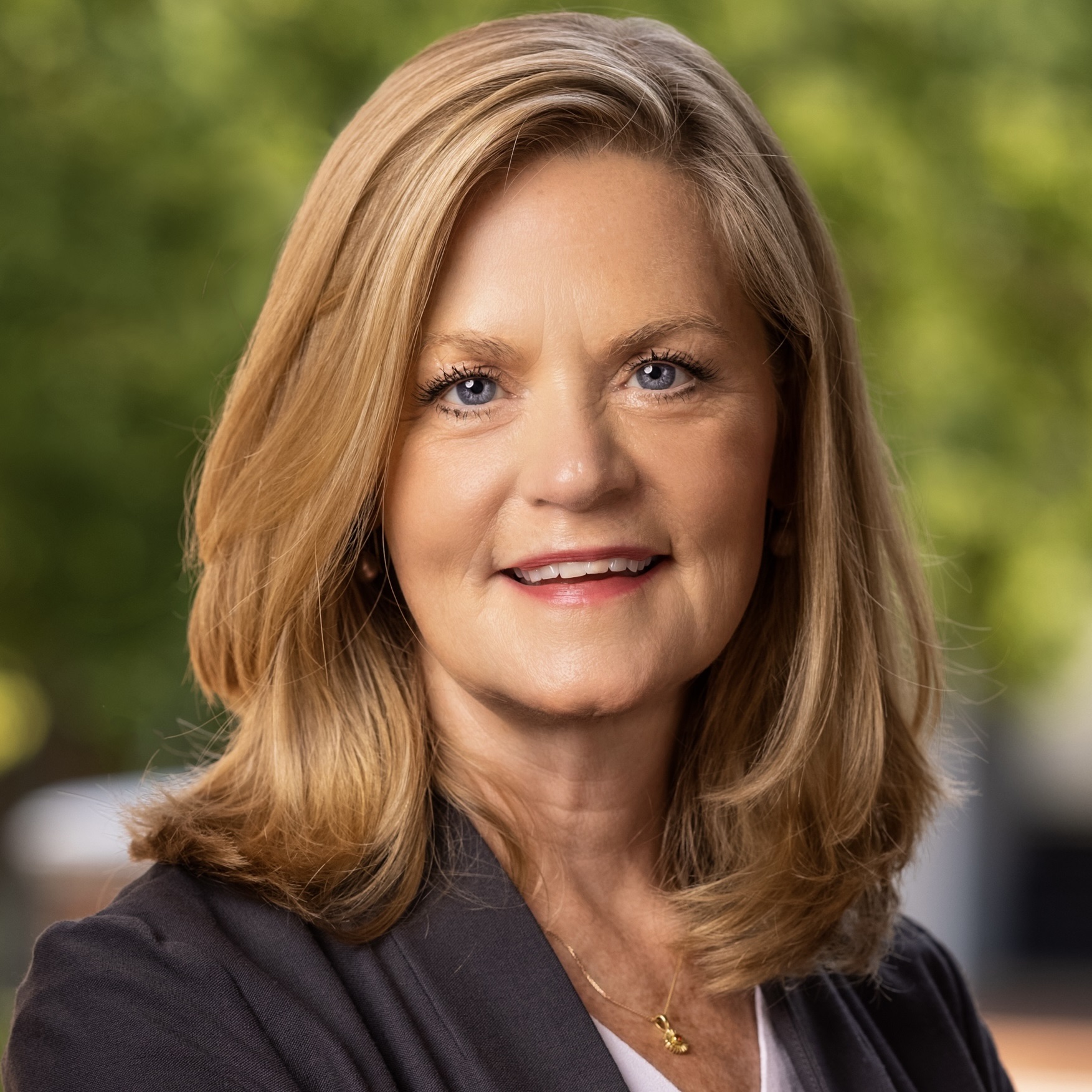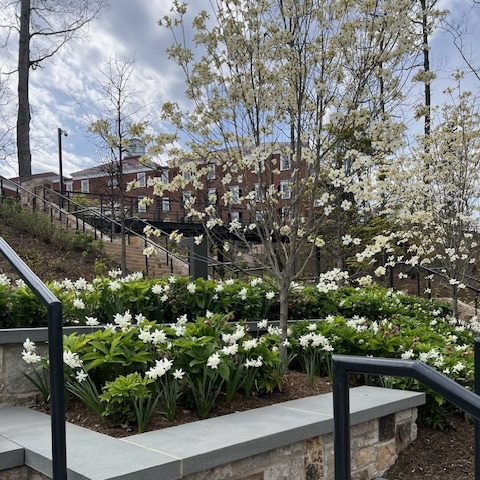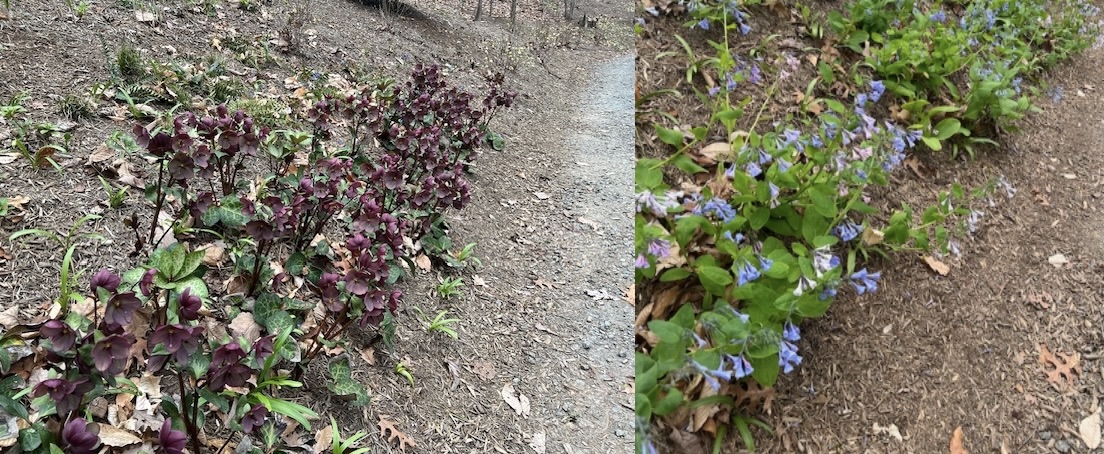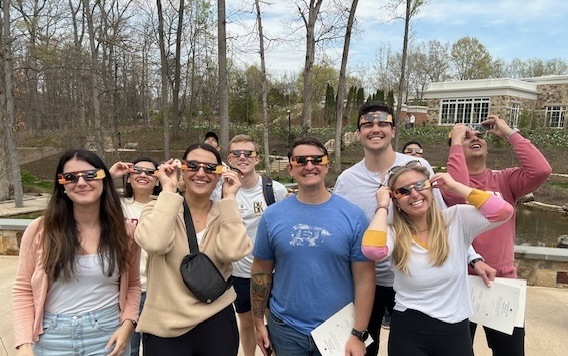I Feel Like a Speck
 Lili Powell holds a joint appointment as the Julie Logan Sands Associate Professor, Darden School of Business, and Associate Professor, School of Nursing. She is also the Director of the School of Nursing’s Compassionate Care Initiative (CCI), which promotes wellbeing, collaboration, leadership, healthy work and learning environments, and compassionate care. Her teaching and writing explore the intersection of mindfulness, communication, and leadership. Through Darden’s Executive Education and Lifelong Learning, she teaches “Leading Mindfully.”
Lili Powell holds a joint appointment as the Julie Logan Sands Associate Professor, Darden School of Business, and Associate Professor, School of Nursing. She is also the Director of the School of Nursing’s Compassionate Care Initiative (CCI), which promotes wellbeing, collaboration, leadership, healthy work and learning environments, and compassionate care. Her teaching and writing explore the intersection of mindfulness, communication, and leadership. Through Darden’s Executive Education and Lifelong Learning, she teaches “Leading Mindfully.”
Spending time in nature can be a powerful antidote to the complexity and uncertainty of our times. As Ralph Waldo Emerson wrote, “In the woods, we return to reason and faith.” Berkeley psychologist Dacher Keltner’s new book, Awe, demonstrates, through research and storytelling, this restorative power of nature. For as little as a few minutes, experiences in the outdoors can heighten our senses, evoke positive emotions like joy, wonder, and awe, and help us gain much-needed perspectives that quiet our egos and orient us toward being part of things larger than ourselves.[1]

In this spirit, I recently invited MBA students in my course, “At Your Best,” to join me on April 8 to observe the solar eclipse in the Darden School’s new Arboretum and LaCross Botanical Garden. The outing paired our course’s focus on developing personal resilience skills that support communicating and leading well with a once-in-a-lifetime opportunity to cultivate mindfulness, perspective, and joy. Through the Compassionate Care Initiative, which I direct at the School of Nursing, we routinely take nursing students and others on retreats at Morven where we walk through the Japanese Garden. I wanted to share the benefits of the outdoors with my Darden students, too.
In “At Your Best”, we develop inner and outer awareness through contemplative practices and other training. This afternoon, specifically, we practiced mindfulness exercises that I introduced in class the week before called “mindful walking” and “See Hear Feel.”[2] Outwardly, we gathered to explore the newly designed open-air spaces and to observe a rare solar eclipse. Inwardly, we practiced mindfully tapping into the senses, emotions, thoughts, and stories that arise when encountering nature.
Although we focused on the present moment during the outing, I shared some history for added perspective and to help students appreciate the magnitude of the transformation that is underway in the Arboretum and LaCross Botanical Garden. Once home to the Monacan people, the land had been known as Sunnyside Farm, beginning in 1788 until the University bought it in 1963.[3] In recent years, a large gully channeled stormwater through the center of what became a manicured pond in the Upper Gardens. It is all the more astonishing now that this once forgotten and neglected space has become the realization of Thomas Jefferson’s dream of a botanical garden at the University. Yet the leadership of Dean Scott Beardsley and the support of generous alumni donors such as David and Kathleen LaCross have created new physical contours and learning possibilities. While still in its early days, I imagine this space growing into a living museum of plants, trees, and landscape design on par with The Lawn’s homage to classical architecture and ideals of an Academical Village.
When I arrived that afternoon, a dozen and a half of my students were already gathered at our meeting spot: The Class of 1987 Amphitheater. Quickly, I distributed special eclipse glasses to everyone. Then, all of us turned our gaze to the sky, fully absorbed in the here and now.
Without prompting, the See Hear Feel exercise started immediately. As the moon had already started to block the sun, we witnessed the slim orange crescent through our glasses. A chorus of wows and “That’s so cool!” welled up. We felt the air getting cooler and the breeze starting to kick up. The delight and laughter were palpable, like a playground.
When clouds rolled in, a small group of students and I passed the time by taking a mindful walk through the lower gardens and the arboretum. While the hardscapes were in place, plant life at this early time in April was only just beginning to show signs of growth. Along the trail, patches of Virginia Bluebells and Lenten Rose were in bloom. At other points, we could see white circular shapes spray painted on the ground, waiting for more plantings. Newer trees and shrubs were interspersed with mature trees, one perhaps as many as 200 years old—a stunning mix of history, nature, and potential.

As we walked, I asked the students how they felt. One said, “I feel like a speck.” We talked about how humbling it was to feel so small. I smiled to myself, knowing my intentions for the experience were getting through. By the time we finished our loop and returned to our starting point, the clouds were beginning to clear. Now, the orange crescent was getting thicker, signaling that the moon was beginning to move out of the path of the sun.
Our conversation shifted to when the next eclipse would occur. Although eclipses are expected in the U.S. in 2044 and 2045, they won’t be very visible in Charlottesville. The next total solar eclipse in Charlottesville is expected in 2099. It dawned on us that few, if any, of us would still be alive by then. We paused; our breath taken away by this realization.
Soon, we smiled and started to say goodbye. The remaining students thanked me and went happily about the rest of their day. I stayed behind to take it all in, appreciating the beauty of the moment and the benefactors who made an extraordinary afternoon with my students possible.
[1] Dacher Keltner, Awe: The New Science of Everyday Wonder and How It Can Transform Your Life (New York: Penguin, 2023).
[2] When combined, mindful walking and See Hear Feel have some similarities with the Japanese practice of shinrin-yoku or “forest bathing.” If you would like to practice an exercise like this, see this guide to an Awe Outing.
[3] For more information on Sunnyside, visit the Small Special Collections Library and Slavery and the UVA School of Law.

- Musings on National Violin Day
- Having a Drink With Your Donkey: The Absurd in Antiquity
- What Happens to UVA’s Recycling? A Behind the Scenes Look at Recycling, Composting, and Reuse on Grounds
- UVA Club of Atlanta: Virtual Pilates Class
- UVA Club of Fairfield/Westchester: Cavs Care - Food Pantry Donation Drive
- UVA Club of the Palm Beaches: Hoo-liday Cruise